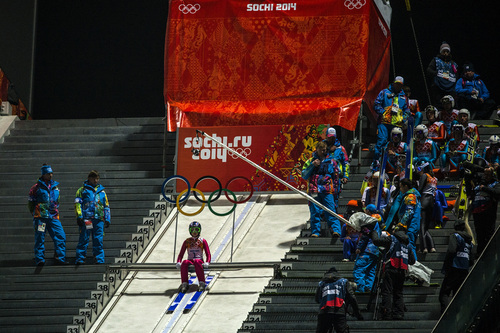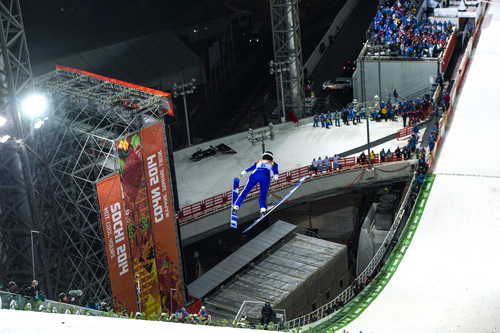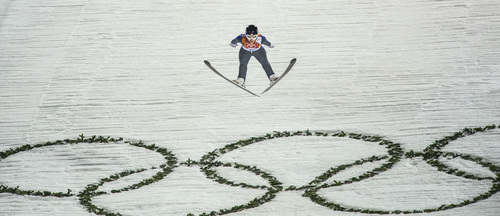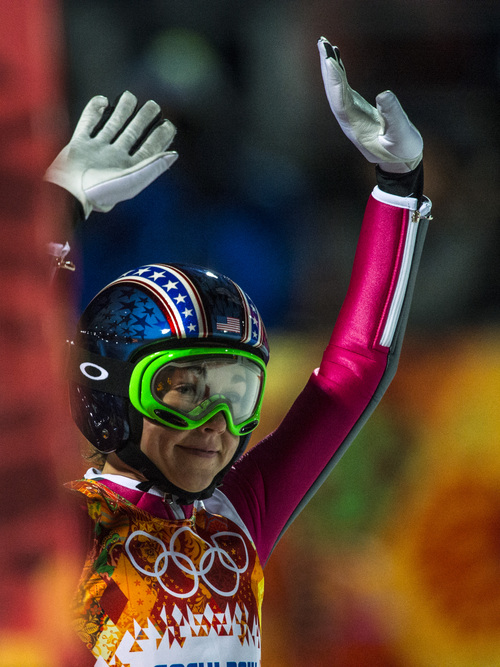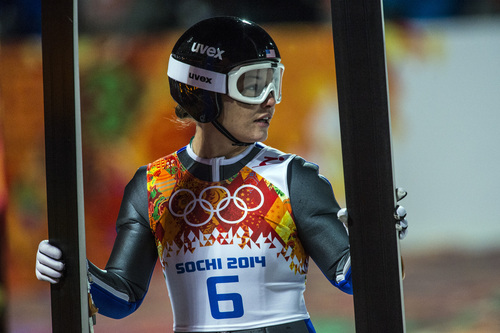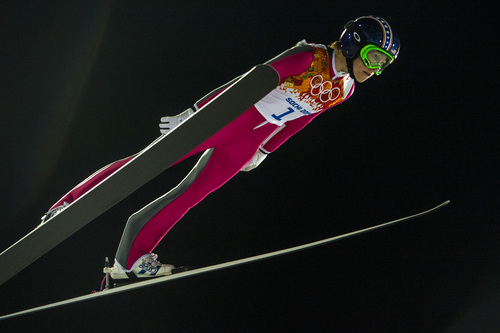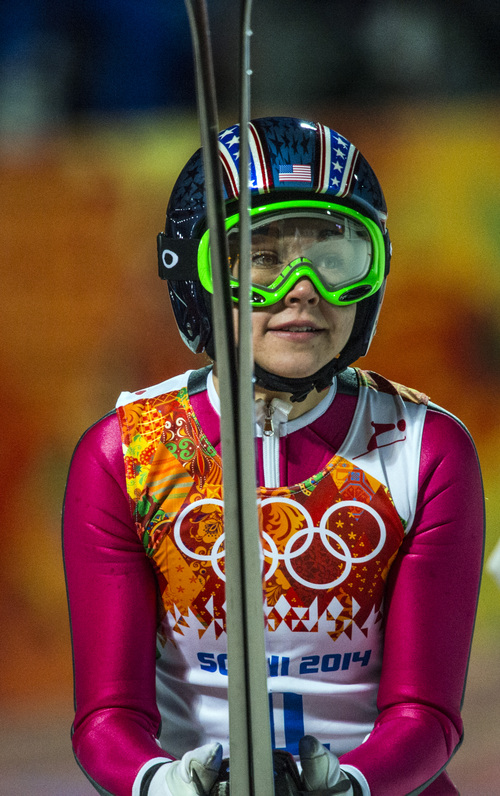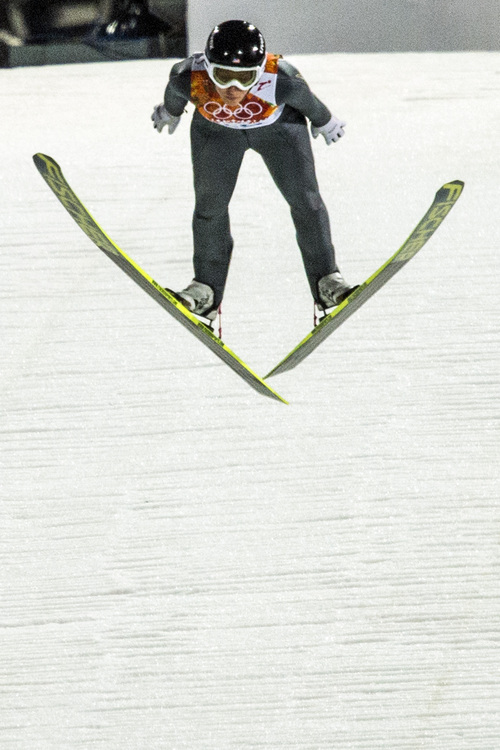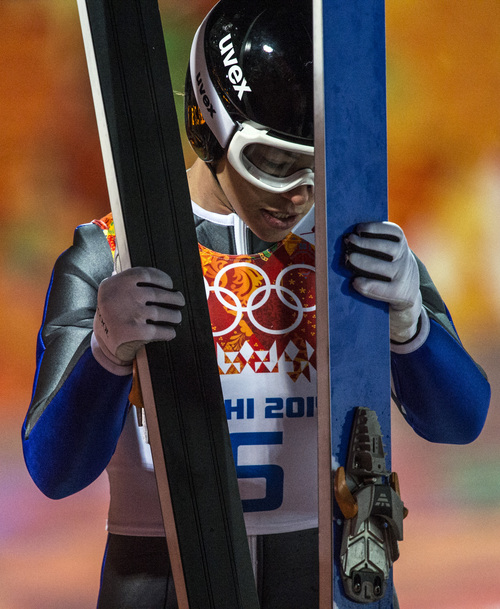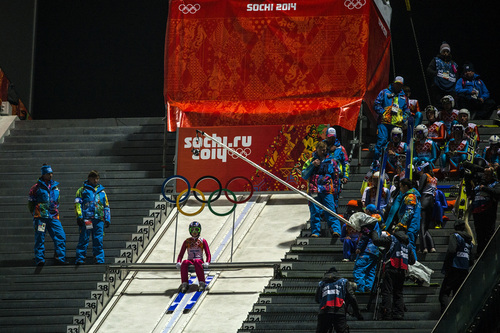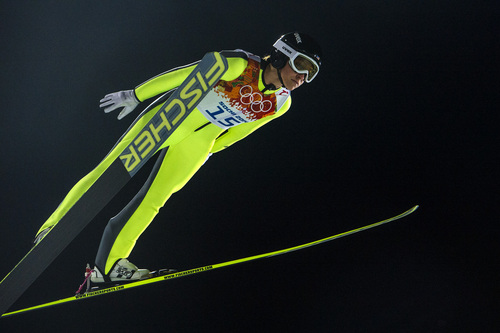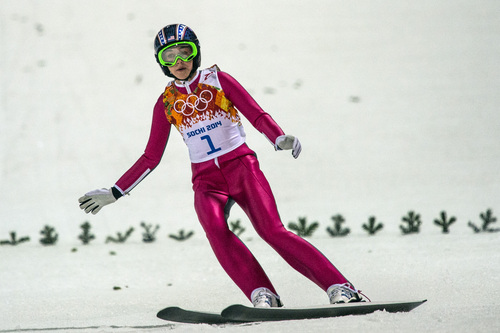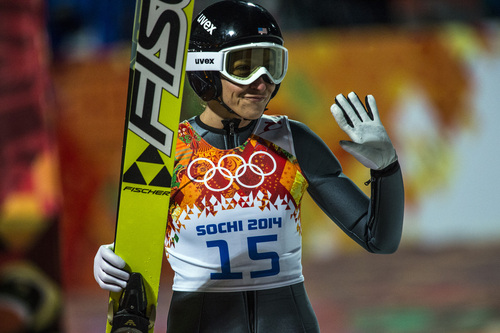This is an archived article that was published on sltrib.com in 2014, and information in the article may be outdated. It is provided only for personal research purposes and may not be reprinted.
Krasnaya Polyana, Russia
Jessica Jerome loves to tell the story of growing up in Park City and wanting to try ski jumping at the Utah Olympic Park. Her father initially resisted, because his only image of the sport came from the opening scene of the old "Wide World of Sports" program that showed the ski jumper crashing, with the legendary narration of "the agony of defeat."
All these years later, when women's ski jumping made its Olympic debut, Jerome was unhappy with her 10th-place performance. Yet this entire scene was a triumph, not a defeat. Everybody involved in the women's ski jumping crusade, especially in Utah, devoted too much effort for too long to have Tuesday night's competition at the RusSki Gorki Ski Jumping Center become anything other than a huge victory.
Germany's Carina Vogt celebrated her historic win, and she was not the only one. Imagine being Lindsey Van, the face of this fight for an Olympic opportunity, managing to compete at an elite level long enough to join in the occasion. She deserved to enjoy every bit of it, and she did, with a 15th-place showing that she laughingly described as "my best-ever Olympic performance."
This night justified everything — the campaign for inclusion, the unsuccessful lawsuit to make it happen four years ago, the quest for fairness that ultimately was granted.
"Everything I went through was more than worth it," Van said. "I mean, I just got to see somebody win a gold medal. That alone, whether it was me or anybody else … our sport will never be the same, and it's changed forever."
Vogt, the other medalists and everyone else who competed in this showcase on a pleasant night in a vibrant venue should be very thankful. In multiple ways, this was a made-in-Utah production, and it was meaningful to many influential people, including Peter Jerome, who bought a "Nonprofit For Dummies" book to learn how to launch the Women's Ski Jumping USA foundation, and Deedee Corradini, the former Salt Lake City mayor, who became the organization's president.
The battle "became much more than ski jumping," Corradini said at the venue. "It really became a women's rights issue and a human rights issue, because we were really fighting for all women in all sports and, hopefully, all aspects of life."
If there was any downside to the event, it was the reality that Tuesday came an Olympiad too late for Van and a year too early for Sarah Hendrickson, who finished 21st. Jerome actually was the most disappointed of the three Park City products, even if 10th was a not-far-off projection for her.
Van, 29, would have been in her prime in Vancouver four years ago, but the women's event was not yet included. She once hoped ski jumping would make Salt Lake's program in 2002, but it all took this long.
Hendrickson showed courage in coming back from a severe knee injury in August and competing in the Olympics. But any suggestion that she could find her World Cup title form this quickly was obviously just wishful.
The pain was too strong. "I tried to push it aside," she said, "but it still affects you."
Even at her best, she may have been overwhelmed by the atmosphere. She smiled about not remembering what went through her mind as the first jumper in Olympic history, having drawn bib No. 1, but she wasn't kidding. "Seriously, the pressure, everything … it sort of overtakes your mind," she said.
The moment apparently was too much for Japan's Sara Takanashi, the big favorite, who finished fourth.
Vogt crouched in the finish area after her second jump, hoping her combined score would be enough. When the score was posted, she fell to her knees, overcome with emotion.
And that's how the first Olympic women's ski jumping event ended, with the agony of victory.
kkragthorpe@sltrib.comTwitter: @tribkurt


